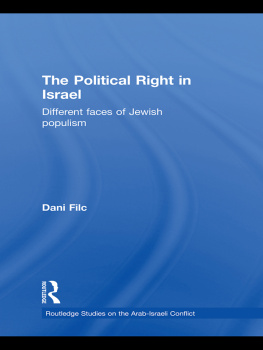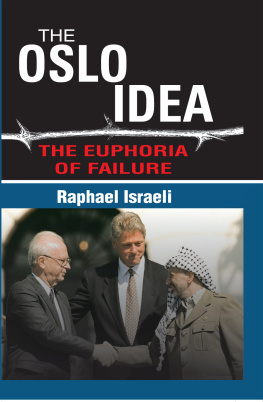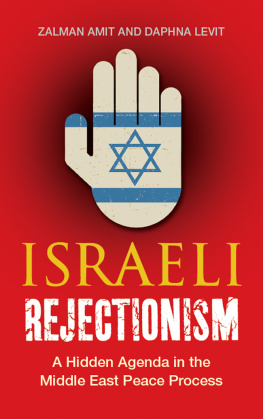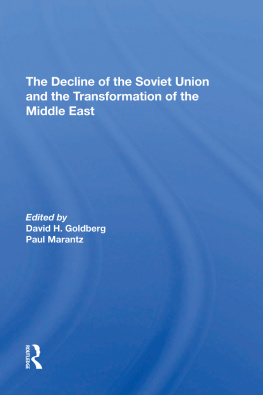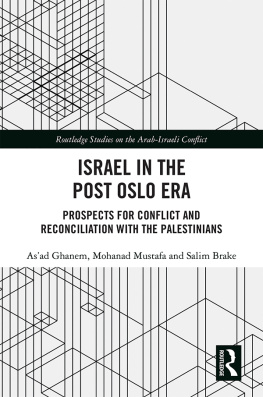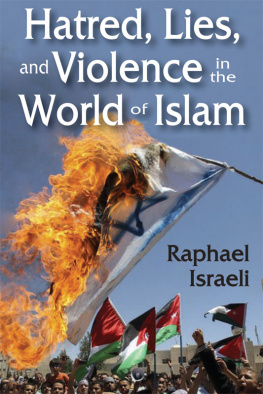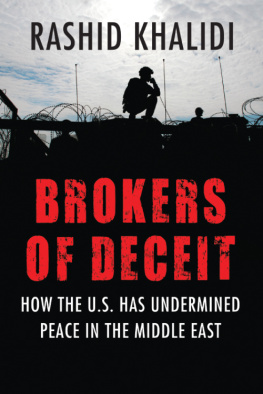Soviet Jewish Aliyah 19891992
First pubished in 1996 by
FRANK CASS & CO. LTD
This edition published 2013 by Routledge
2 Park Square, Milton Park, Abingdon, Oxon OX14 4RN
711 Third Avenue, New York, NY 10017
Routledge is an imprint of the Taylor & Francis Group, an informa business
Copyright 1996 Clive Jones
British Library Cataloguing in Publication Data
Jones, Clive
Soviet-Jewish Aliyah, 1989-92
I. Title
304.85694047089924
ISBN 0-7146-4625-3
Library of Congress Cataloging-in-Publication Data
Jones, Clive, 1965-
Soviet Jewish Aliyah, 1989 to 1992: impact and
implications for Israel and the Middle East / Clive Jones.
p. cm.
Includes bibliographical references and index.
ISBN 0-7146-4625-3
1. Jews, Soviet-Israel. 2. Soviet Union-Emigration and
immigration. 3. Israel-Ethnic relations. 4. Israel. Knesset-
Elections, 1992. I. Title.
DS113.8.R87J66 1996
956.9404924047-dc20
95-17863
CIP
All rights reserved. No part of this publication may be reproduced in any form or by any means, electronic, mechanical, photocopying, recording or otherwise, without the prior permission of the publisher.
To my mother and father
Contents
This book, and the thesis on which it was originally based, could not have been completed without the help and support of so many people. I would like to thank in particular those whose names follow to whom I shall always remain indebted for their knowledge, kindness, generosity, and above all friendship. During the course of two research trips to Israel, Tamara and Yigal Amitai were a continuous source of intellectual encouragement, furnishing me with much of the material that has been used throughout this work. Arnon Dunetz of Mapam deserves special mention for arranging many of the interviews, while the hospitality of Dikla Halevy and Alon Hornstein was generous in both its warmth and scope.
In the United Kingdom I owe a considerable debt to many friends and colleagues, without whom, little of value could have been achieved. Guy and Nurit Abrahams, Fiona Butler, Louise Campbell, Jan Goodey, and John Stone all gave freely of their time and support, particularly when it was needed most. Dr Caroline Kennedy-Pipe and Dr Moorehead Wright provided invaluable comments on earlier draft chapters, while Professor Ritchie Ovendale was a constant source of advice and encouragement throughout. Professor Robert O. Freedman of the Baltimore Hebrew University was particularly helpful in providing me with much useful information. Finally, the successful completion of this work could not have been accomplished without the support and guidance of Professor James Piscatori. As a supervisor, he was an intellectual inspiration, encouraging at every opportunity yet providing the whole endeavour with an academic rigour second to none. But more than this, he has been a friend. For this, and his support, I shall be forever in his debt.
1
Soviet Jewish Aliyah 19891992: An Introduction
Between October 1989 and June 1992, over 400,000 Jews left the former Soviet Union for the State of Israel. A comparable wave of migration would be the movement of 50 per cent of the population of France to the United States over a four-year period. The very magnitude of this exodus affected superpower relations, American-Middle Eastern relations, Middle Eastern relations themselves, and the internal political equilibrium of Israel as a nation-state. To this end, this book is an examination of the political impact of Soviet Jewish migration as a transnational flow, how it complicated the decision-making of key actors, helped redefine Israels domestic political agenda, and, by extension, the approach of the Jewish State towards regional peace. This approach demonstrates clear linkages between developments in domestic politics and the implementation of foreign policy by a state lite: in this case, the Likud dominated National Unity government of Yitzhak Shamir. The use of the term transnational to describe the process of migration is deliberate, not least because it widens the remit of what has traditionally been understood to constitute such activity.
Emerging in response to the perceived movement towards greater global interdependence throughout the 1960s and early 1970s, the transnational debate concentrated on the role of non-state actors in eroding the hegemony of states as the dominant actors in world affairs. While the role of economic organizations such as international banks and multinational corporations in this debate elicited the most interest, other examples of transnational activity included cross-border contacts among groups and individuals, and the permeability of borders through the revolution in telecommunications.
Peterson has sought to widen the scope of transnational activity to include the role of societal actors in the study of international politics. Set within a domestic environment these include the activities of individuals, companies, interest and social pressure groups, and their effect upon state behaviour. As Peterson explains:
These societal actors have significant effects on the flow of material resources, know-how and ideas around the world, and cannot be ignored in any full account of international relations. At the same time, they co-exist and interact with states. A sound understanding of world politics depends on understanding the different types of societal actors operating transnationally, the various relations that can exist between them and states, and the sort of tactics they adopt in their efforts to influence states.
In short, while continuing to place primacy on the state as the main actor in international politics, Peterson is concerned to examine the impact of these societal actors on state behaviour. This is a notably different approach from the original study of transnationalism, which viewed non-state actors as largely autonomous from their domestic setting. By enclosing societal actors within the remit of transnational activity, Peterson sets out to establish clear links between the conduct of domestic and international politics.
Implicit within the concept of societal actors affecting state behaviour in the international system is the assumption that society is autonomous from the state. A state in this context may be defined as the institutionalized apparatus of rule that is expected to maintain the physical security of the country as a whole and of the groups and individuals within it. The failure of the state lite to reconcile both challenges can undermine the legitimacy of its standing with its own society.
In the context of Israeli politics, the public reaction to the massacre of Palestinians at the Sabra and Chatilla refugee camps in Beirut in 1982 provides a prime example. In this instance, a societal actor - the pressure group Peace Now - was able to mobilize mass public support against the government. This ultimately led to the resignation of Ariel Sharon as defence minister and to the establishment of the Kahane commission to examine the extent of Israeli culpability. These events anticipated the growing debate concerning the relationship between the state and society that has developed since the end of the Cold War. In particular, there has emerged a growing interest in concepts of civil society and its effect upon the state as an institution. No precise definition concerning the parameters of civil society exists, but a broad consensus as to its intellectual origins and key constituent elements can be traced. This rests in turn on a definition of society that posits clear distinctions between society and the role of the state.


